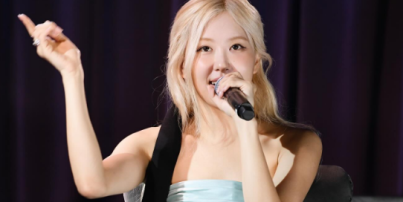
BLACKPINK's Jennie is finally speaking out about the repressive and restrictive culture within the KPOP world, and she is ready to break out of it.
"Starting my career in Korea as a K-pop artist has restricted so many sides of me where it wasn't just allowed to be shown because I'm a K-pop idol,' the singer slash actress said during her appearance at Dua Lipa's "At Your Service" podcast.
Most fans know the glamorous exterior shown in KPOP, but beneath the dazzling outfits and upbeat music is a darker and more depressing truth: KPOP idols are more often than not "slaves" to their companies and agencies.
Jennie Breaks KPOP's Boundaries
There are a lot of things that a KPOP idol must live by if they want to continue a music career; that includes not dating publicly, having strict diets, and non-stop work.
"As things grew over time, I was able to express myself and people would see it as breaking boundaries," Jennie continued.
One of the boundaries she broke was by appearing on the highly controversial HBO series "The Idol," in which she starred alongside Lily-Rose Depp and The Weeknd.
South Korean netizens criticized Jennie for her expressive expressions on the show, and her revealing outfits.
"That's when I realised, I want to break more boundaries for people in my culture to understand that you can express yourself as however you want," she added.
KPOP Fans Laud Jennie's Bravery
Although the South Korean audience are more critical of Jennie, her career, outfits, and lifestyle, her international fans are thrilled that she is finally breaking out of the stereotypical KPOP idol role.
"I'm so glad she's been able to talk about this," a fan wrote.
"We stand with Jennie," another added.
Other netizens, who were perhaps not aware of how restrictive KPOP is behind the scenes could not help but feel sorry towards the idols.
"Korea is so far behind in many regards like this it's quite sad actually," a netizen wrote.
Elsewhere in the podcast episode, Jennie addressed that the restrictive culture affected her enthusiasm toward her job.
"I kind of got confused because the more I did singing and music I came to realize that there's a big side of me inside that I love to sing, just play with my vocals," Jennie explained.
"So there was definitely a burnout season... a moment where I was denying myself just because the idea that I didn't pick this path that somebody else has picked for me."
© 2026 MusicTimes.com All rights reserved. Do not reproduce without permission.







